Meet @so.frech, Our First Collector Talking Grand Seiko
‘Just a Seiko? I’m perfectly fine with that!’ and he’s right to say so!
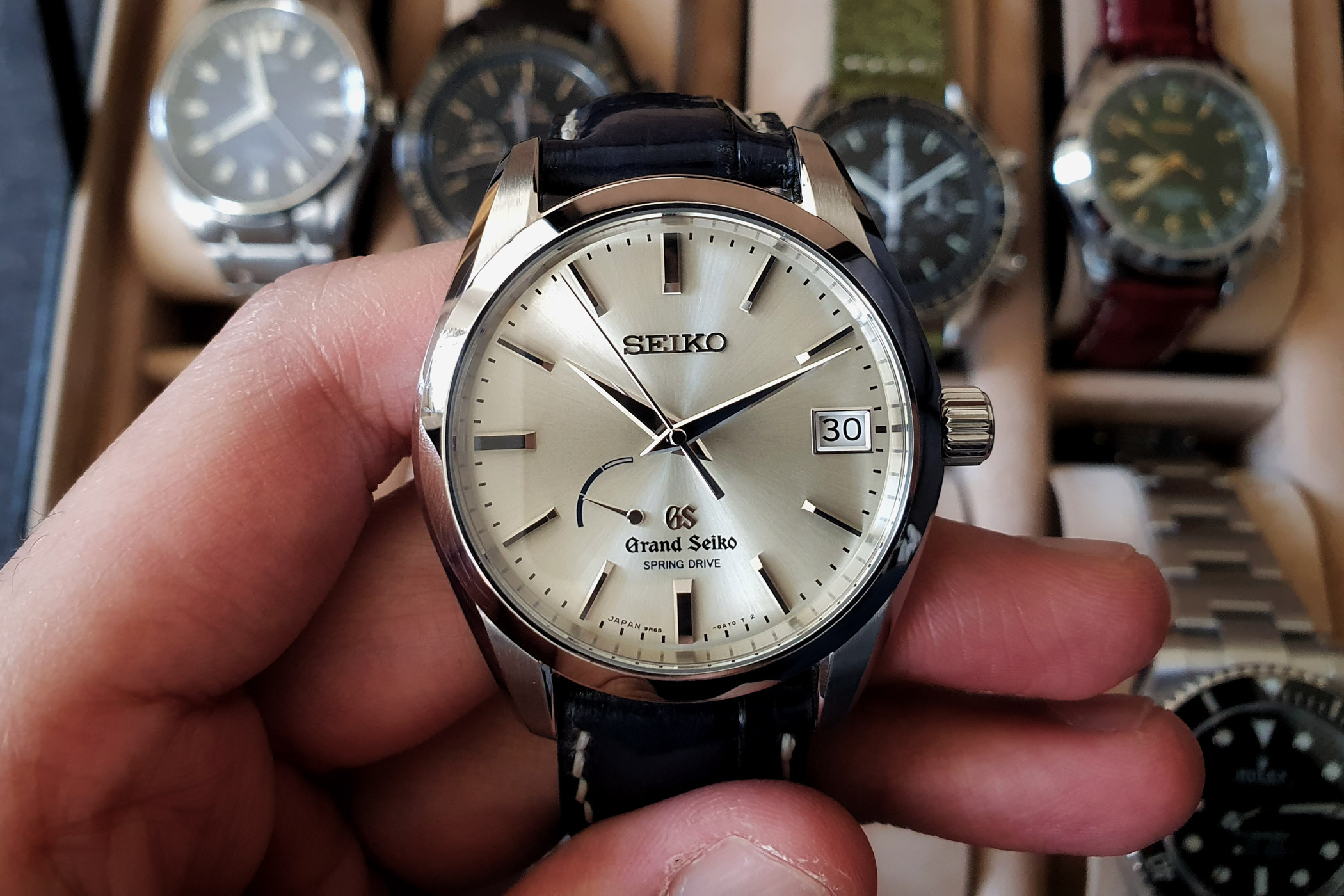
For the first time in our Collector’s Series we talk about a Grand Seiko and we do this with Austria-based collector who can be found as @so.frech on Instagram. Grand used to be JDM (Japan Domestic Market) only and only opened up to customers from outside Japan since 2010. Although it’s not a young brand, for people outside Japan, Grand Seiko remained unknown. By now the brand is pretty well established among its peers and here on MONOCHROME we are always highly enthusiastic when we’re talking about Grand Seiko. And not only because of the Zaratsu polishing technique – an ancient method to polished Samurai swords – that results is stupendously good finished cases and hands. We will be talking with @so.frech about his Grand Seiko Spring Drive SBGA083.
Frank Geelen, MONOCHROME – Grand Seiko is a relatively new brand on the collectors’ scene. What is its appeal to you?
@so.frech – I was fortunate to have gotten on the Grand Seiko bandwagon before it became hot and before all the major YouTube watch channels started making videos comparing Grand Seiko dial finishing to that of Rolex, Patek Philippe, and everything in between. Back when I was just getting into this hobby, I was an avid reader of watchuseek.com and I remember coming across the term “stealth wealth” there for the very first time in the context of Grand Seiko watches. I read more and more about the brand and the incredible engineering brilliance and dogged persistence that led to the commercially viable release of the first Spring Drive movements and I was hooked!
But if it’s hi-beat calibers you want, isn’t Zenith the more obvious choice?
Certainly, but I knew I wanted to own a Spring Drive caliber. Grand Seiko hi-beat calibers have a rich history, although in my eyes, yes, the Zenith El Primero is the hi-beat movement to own. Spring Drive, however, is something unique to Seiko – I wanted to own something that I consider one of Seiko’s greatest contributions to horology. Sure, Piaget did release something similar in the past, but only Seiko has so far developed the techniques to serially manufacture this technology. I went to a Grand Seiko boutique to try on the Snowflake, probably the most recognizable of Grand Seiko Spring Drive watches, yet I didn’t feel the pull. The 41mm case felt too large on my wrist, and the chalk-white dial felt slightly too cool, even sterile. So, I searched for something with a smaller case and the SBGA083 was one of the few Spring Drive options available in 39mm.
What is it that makes you tick for Grand Seiko so much?
I admire the attention to detail. Specifically, looking at the SBGA083, if you just take a glance at the watch, it’ll look like yet another silver-dialled three-hander with a date. If, however, you take the time to look closely and soak in the details, that’s when the sheer quality of the piece becomes apparent. Take the dial for instance. The champagne sunburst dial is referred to internally as “F17” and is supposedly one of the most difficult to achieve from a manufacturing standpoint, even more so than the famous Snowflake dial of the SBGA211. The F17 has this incredibly fine sunburst that makes it glow with a huge range of colours depending on the lighting – shades from gold to bright silver or pink are possible. And then there’s the immaculate finishing of the hands, indices, and the case. This is what uncompromising attention to detail looks like, and Grand Seiko proves that it is possible, even at this price point.
When did it become yours?
I bought this watch in the summer of 2017 – so relatively early in my watch journey, having only truly discovered mechanical watches a year earlier. This is the one and only watch I have ever bought from a private seller online. As you can imagine, I was incredibly hesitant about the transaction, having previously read horror stories about wire transfers going wrong, fake watches being sent, no watches being sent at all, etc. but I followed the maxim “buy the seller”. In this case, it was watchuseek.com user tboyson – an absolute gentleman – whom I must have bombarded with more than a hundred emails regarding the warranty, authenticity, and shipping. To be honest, I am amazed he didn’t decide that my business wasn’t worth his trouble! And so, after a few weeks, the Grand Seiko made the transatlantic journey to me.
But it wasn’t the first watch you bought?
No, I had just bought my first serious watch, an Omega Speedmaster Professional, and I knew I wanted to experience a different flavour of watchmaking – hence the decision to buy a Japanese watch as the next piece. Back in 2017, I was still very focused on acquiring the “landmark” watches from major watch brands, so I immediately did some research and stumbled on the Grand Seiko Spring Drive movement housed in the Snowflake. I am fascinated by Spring Drive because of what it represents – a fusion of mechanical watchmaking romance and quartz precision. So, I guess you can say I bought it for its technical characteristics.
Does your watch get a lot of wrist time?
Surprisingly, it doesn’t get as much time as it deserves, and I do feel guilty admitting it. This has to be the most photogenic watch in the collection and I think I have more photos of it than of all the others combined because of the sheer number of small details I keep discovering the more I look at it. I consider this my “office” watch, the piece I wear when I wish to avoid uncomfortable questions. So far, I haven’t met a single person who sees the Grand Seiko logo and gives a knowing smile, though. Most comments are along the lines of “oh, it’s just a Seiko?”, and you know what? I am perfectly fine with that.
Would you like to share with us what you paid for this watch?
If I remember correctly, I paid around USD 2,500. I am not sure about the current market value of the reference, but the last time I checked, there were none listed on chrono24 so it seems current owners are so happy that they don’t wish to sell!
How would you describe your watch collection so far?
Looking at my watch collection, I realize I am a bit of a contrarian. When I bought my Speedmaster Professional, I didn’t buy the “true” Moonwatch with the solid caseback, I bought the discontinued Ref. 3572 hesalite sandwich. I didn’t buy a traditional JLC Reverso, I went and bought the JLC Gran Sport, the first automatic Reverso and JLC’s take on a modern version of a sporty Reverso – with an integrated rubber strap to boot! Value retention is important and, with the prices of some models skyrocketing over the past years, is becoming more and more of a factor people consider in their purchases. But I don’t think it should be the factor that stops you from spending your money on what you actually want to buy (rather than on what you “should” purchase in terms of value retention).
Voir cette publication sur Instagram
You are a musician. Do you see any similarities between your passion for music and your passion for watches?
There are more than a few similarities, in fact. I sometimes feel that I was born in the wrong century – I listen to and play classical music and similarly, I have a passion for mechanical watchmaking. Both hobbies are steeped in history and are, in their own way, slightly out of touch with the modern world. I was recently given the book “Watchmakers: The Masters of Art Horology” as a gift. The book, released by The Maxima Gallery, presents a snapshot of thirteen independent watchmakers, from Hajime Asaoka to Vianney Halter. Looking at these thirteen artisans, I see the pursuit of perfection and the single-minded (some would say obsessive) devotion to a craft. This is the same mentality that a musician must demonstrate in honing their craft. Also, it is not enough to follow in the footsteps of the masters of old – you need to follow your own “voice”. I think the book sums it up best: “A great watch does exactly what great art does – it touches the spirit”.
Voir cette publication sur Instagram
What’s next on your list?
I am now waiting for the appropriate time to buy my grail watch: the first-generation A. Lange & Söhne Datograph in platinum. I am saving this for a landmark event in my life – either to celebrate a career achievement or to commemorate a significant milestone.
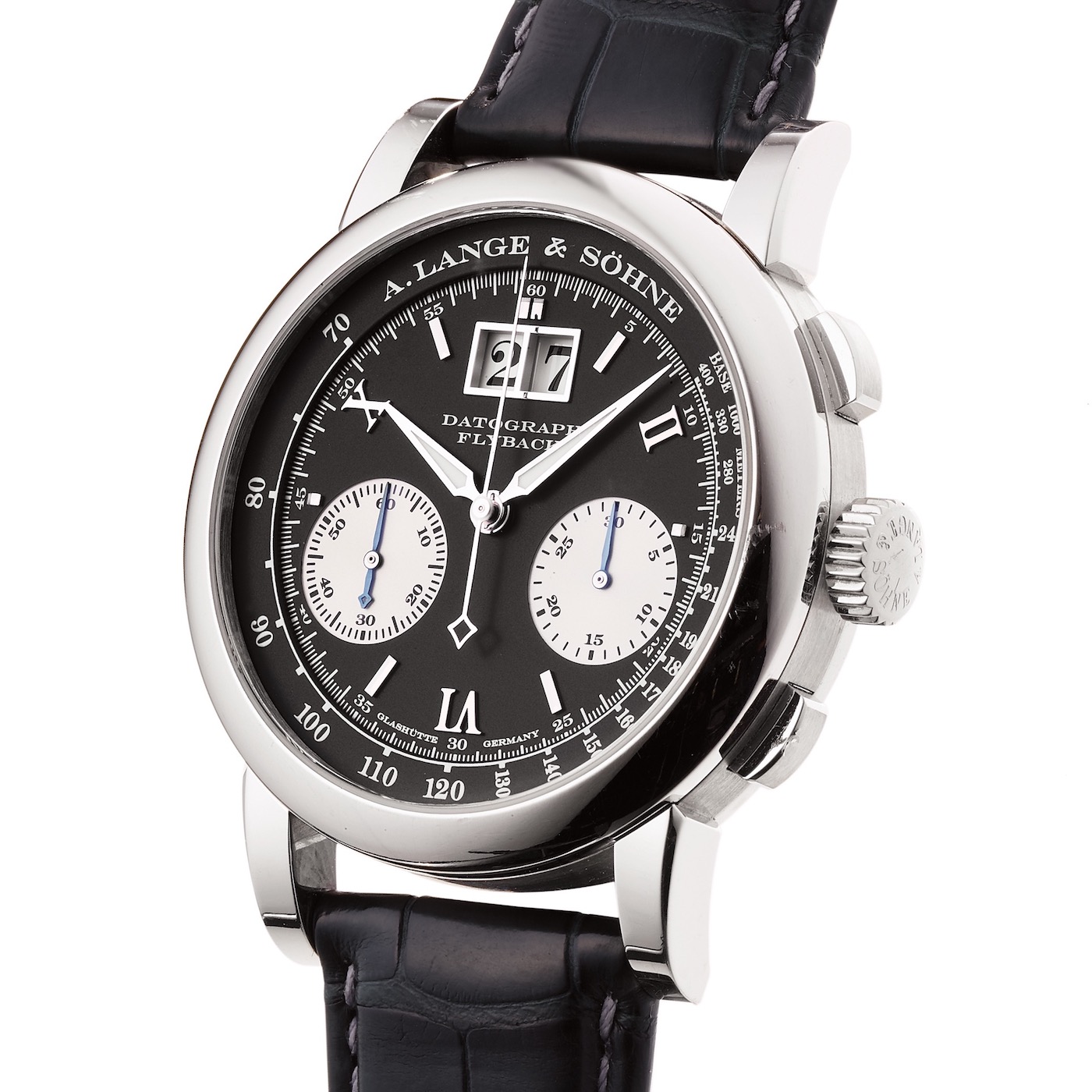
Also, the idea of owning the whole set of 500-piece limited-edition rose gold JLC Reversos from the 1990s (tourbillon, minute repeater, retrograde chronograph, perpetual calendar) has started to grow on me… maybe if you interview me in a couple of years I will have sold off my entire collection to pursue this crazy collecting dream!
If other collectors were considering the Grand Seiko you possess, what tips would you give them?
Well, what they need to know is that the year I bought this watch, Grand Seiko became an independent brand – the result of this corporate rebranding was that all references released post-2017 no longer have the “Seiko” logo displayed proudly at 12 o’clock, as this has been replaced by the “GS” applied logo and company name. The model was thereafter available as the SBGA283, but this too has since been discontinued. It is not a limited-series Grand Seiko, so it should pop up on occasion on various platforms if you are patient. Coming back to this not being a limited-series reference, I am not going to tout this as THE Grand Seiko that’s most likely to retain its value. In time, the double-signed Grand Seikos might become collectable, but this is mere speculation (and perhaps some wishful thinking). Though many Spring Drive watches look rather dressy, they are incredibly tough. Most are fitted with screw-down crowns that endow them with 100m water resistance, so they are suitable daily drivers. In the past three years, I have not had a single issue with regard to reliability or loss of timekeeping. Anecdotally, these movements have been known to go upwards to 10 years without a service – not that this is recommended by the manufacture, of course. I will say, though, that the optically smooth polishing of the case means that hairline scratches will instantly become apparent. This is certainly not an ideal watch for anyone with OCD!
Do you have general tips for people who want to start collecting watches?
Absolutely. Nothing pains me more than seeing someone who is just getting into watches perusing Instagram and being exposed to picture after picture of Rolex stainless steel sports watches, the Patek Philippe Nautilus, or the Audemars Piguet Royal Oak. It seems to me that only a handful of watches dominate the public consciousness. The snowball effect of more and more people gravitating toward the same product has real consequences for our hobby: ever-larger numbers of watch companies are incorporating the same design cues and features as the aforementioned models. In the end, I fear it’ll lead to a stifling of creativity in the watch space and we’ll end up with a bunch of watches that are indistinguishable from each other. My advice to the novice hobbyist: explore. Read the history of various brands and look through both their modern and past product lines. Discover what you like in watches – what features, shapes, sizes suit you and make you smile every time you look down at your wrist? Once you’ve discovered what you like, stay true to that and don’t follow the herd!

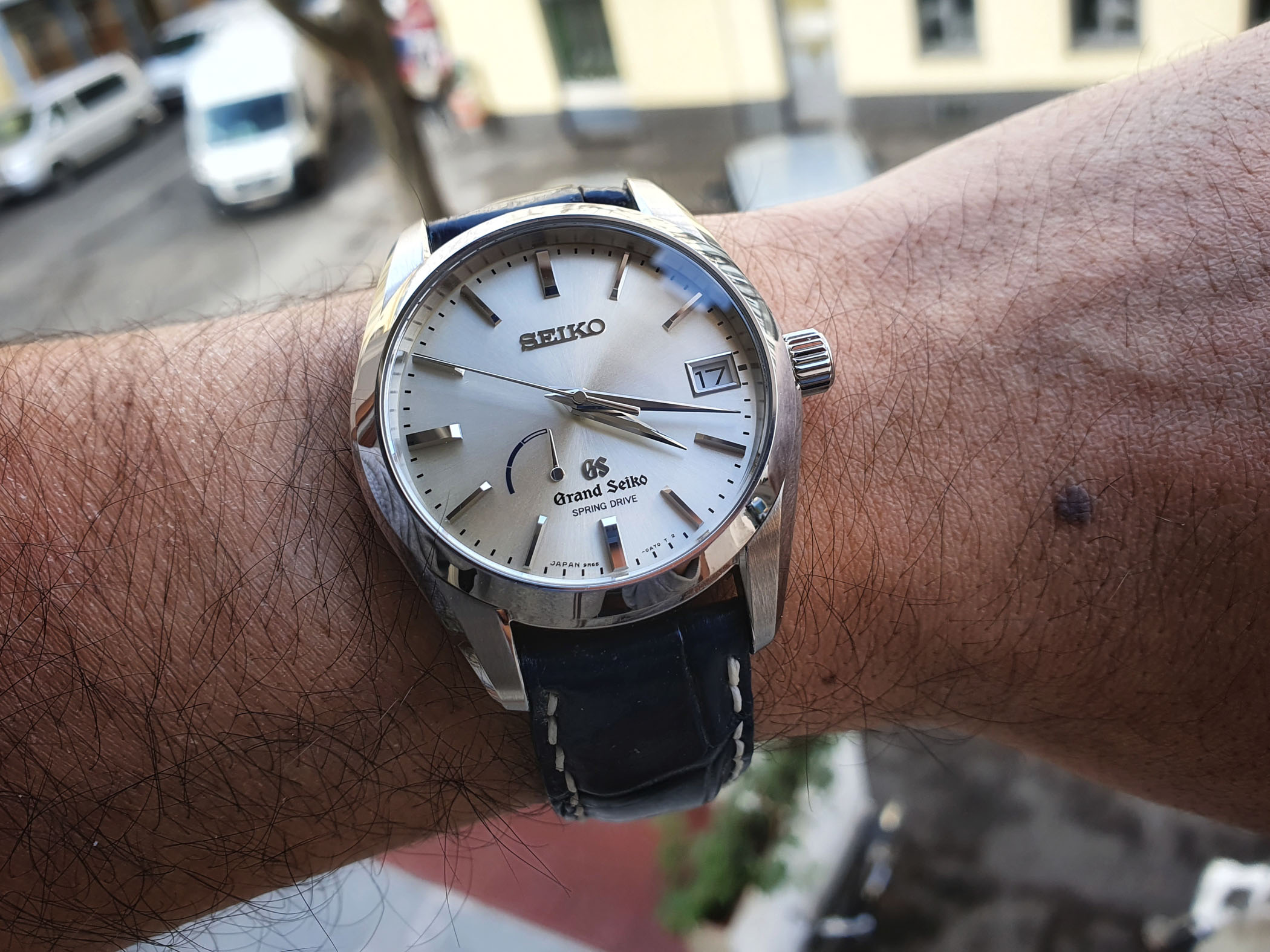

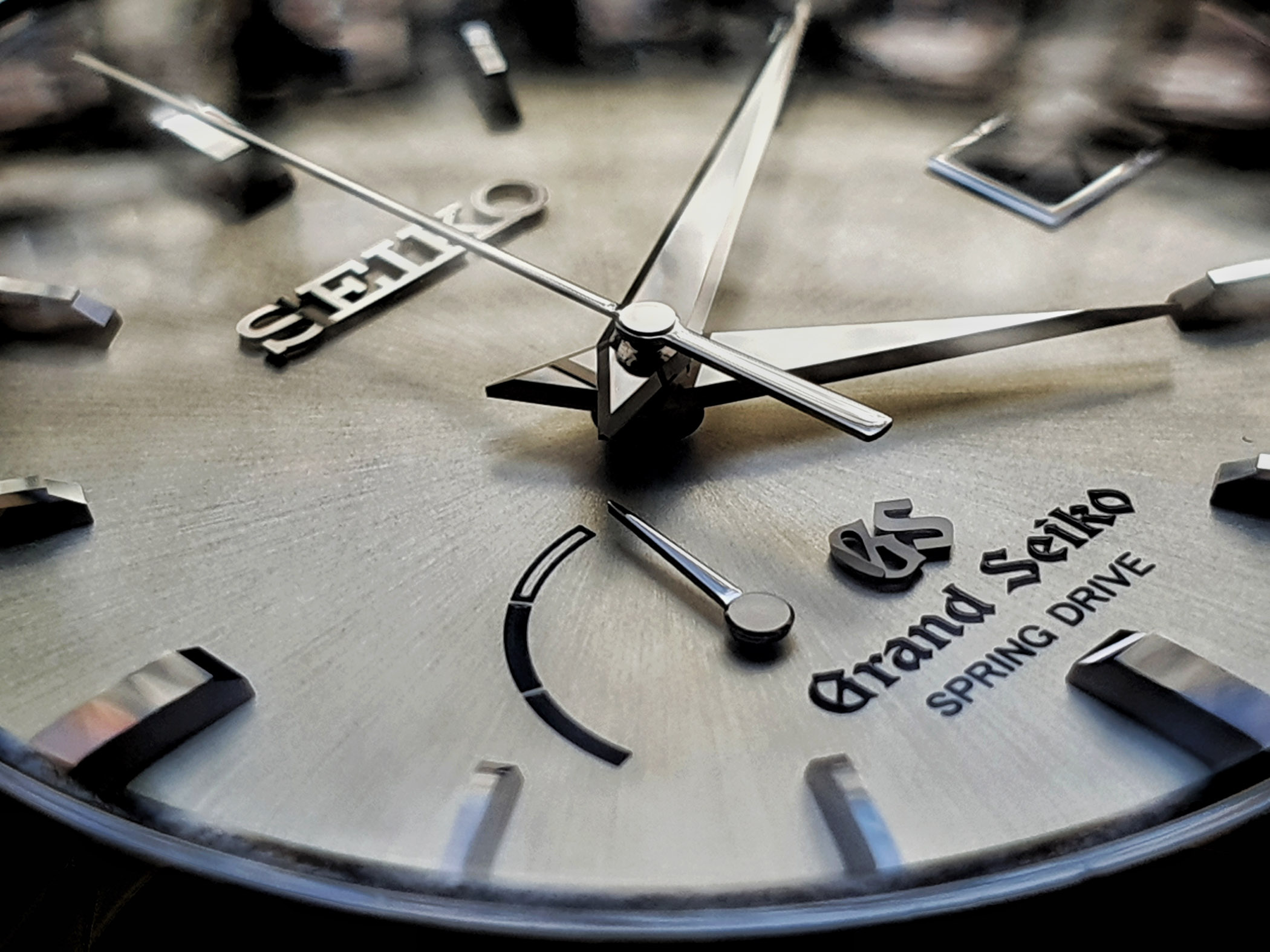


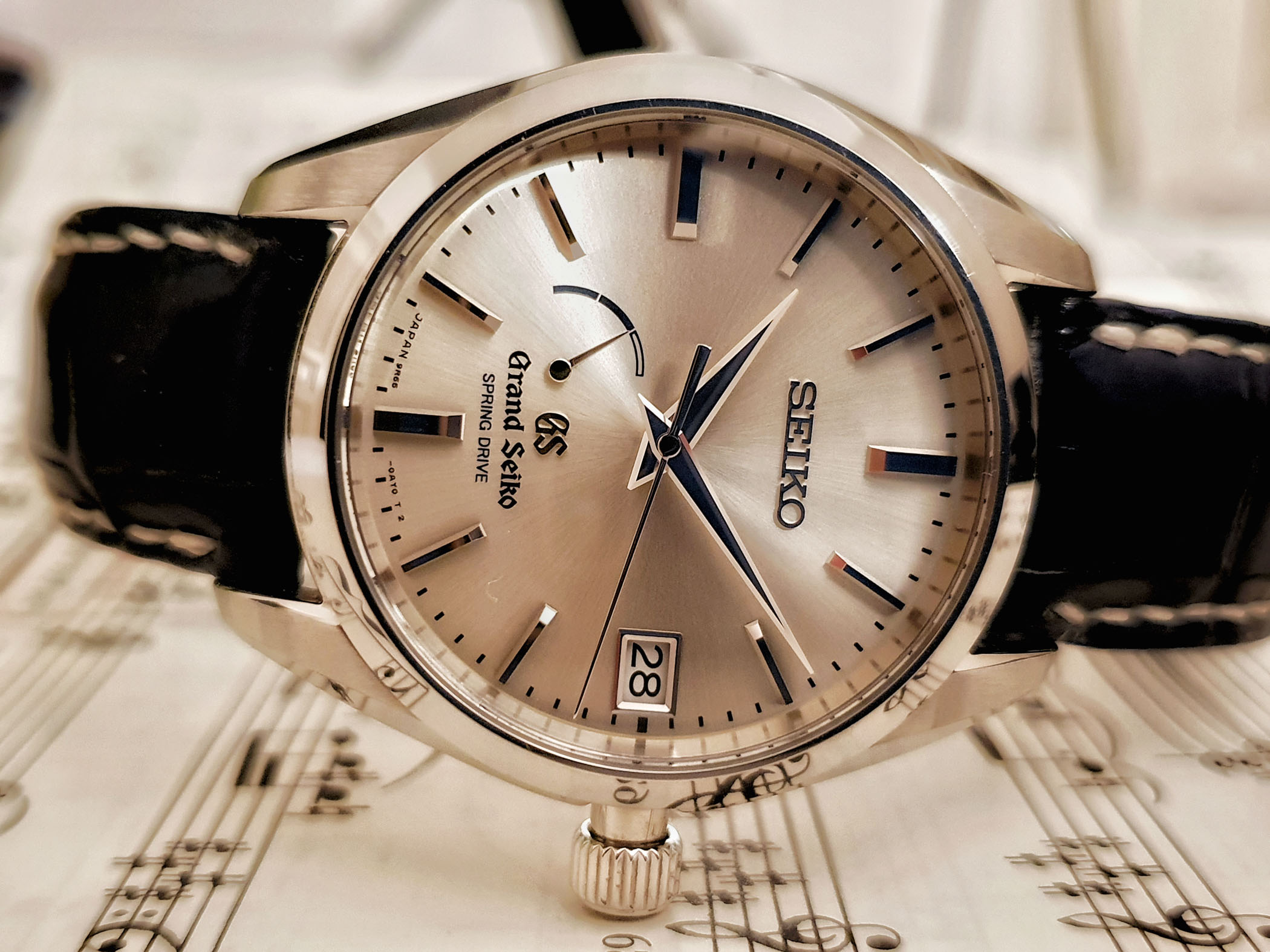
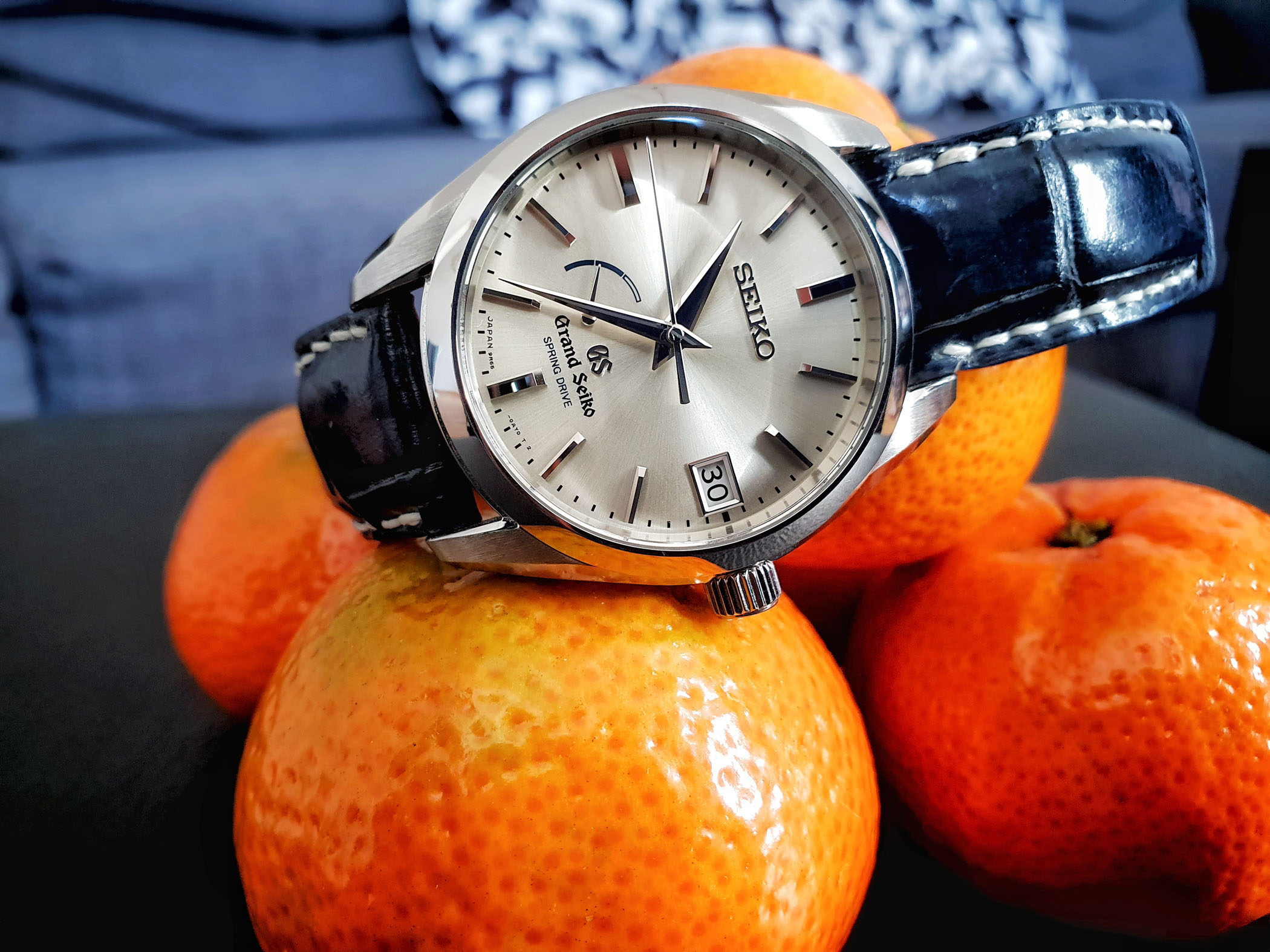
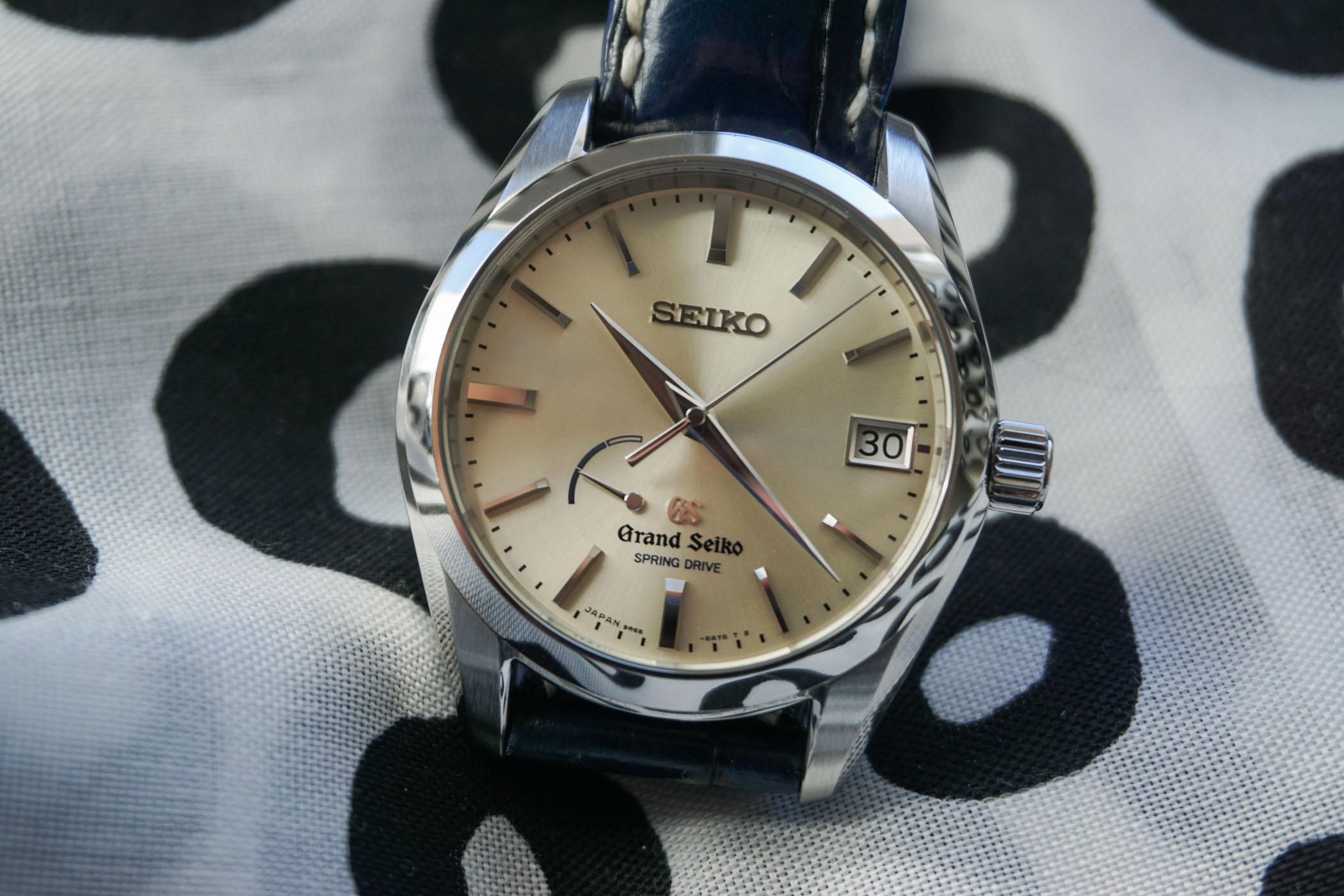
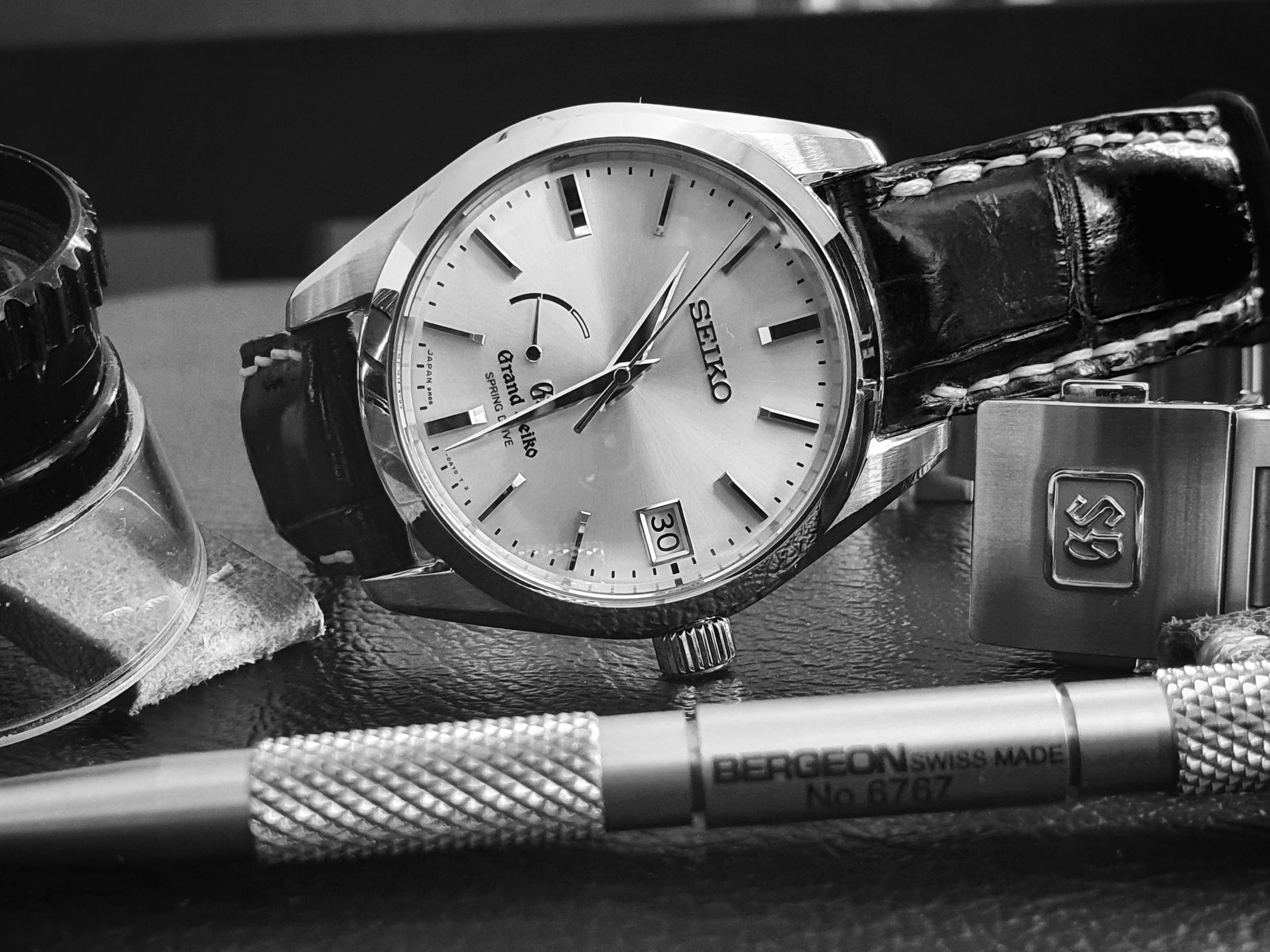



8 responses
I like the format of talking with collectors. Would be nice to find some deep collectors. I’ve been collecting GS since 2013 and I’m a baby. Also, along the GS lines please, please stop saying the polish is like the Japanese sword polishing. The techniques and purpose could be not be further apart.
Tenho um Seiko parecido com esse da foto. Estou vendendo ele por 1.800,00. Tenho ele a 15 anos. Funcionando perfeitamente. Moro na Praia Grande em SP.
I commend you thoroughly on your grail. I find the original Datograph much more desirable than the up/down. I take it you toyed with the idea of a white gold 1815 Chronograph, what with it having a similar movement?
@Gav: Thanks for your question! The thought has crossed my mind but if anything, I view the 1815 chrono as a supplementary addition to the collection after the Dato. For me, it has to be the Dato first – the double-digit date is now one of the defining characteristics of Lange and I feel it adds so much richness to the dial. Also, I like the applied indices of the Dato versus printed Arabics (however elegant they might be) on the 1815 chrono. Lastly, the Dato is the more historically important watch.
I have no lack of respect for people who have access to high end watches. Perhaps we would enjoy an article about collectors for whom a $500 watch would be the epitome of their collection. Personally in the past I bought a couple of Rolexes which I financed to own and have since given to my children. Now the peak of my collection finically is a $1300 AnOrdain. Interesting watches do not have to cost a fortune and all of us exist at different levels financially. High end watches are interesting to read about but are not accessible to many of us. Share the “road” to use a bicycle analogy and let us hear from a dedicated collector who doesn’t mind the fact that his collection doesn’t cost thousands…….please.
Zaratsu is black polishing with origins in Europe, not Japan, and so called because it’s done on machines built by the “Gebrüder Sallaz.”
https://www.grand-seiko.com/au-en/special/9f9s9stories/vol2/2/
Spring Drive isn’t hi beat, it’s no beat. Grand Seiko has a whole series Of Hi-Beat movements.
@ So.Frech
Totally understand, especially the historical aspect. It’s ‘The King’; the watch that gave the trinity a kick up the backside to do better. And then there’s Dufour’s gushing praise, but it’s not like you needed that – you seem to love it for what it is.
Excellent collection otherwise.
Thanks to the commenters whom would never be allowed to be featured here, for correcting all the misinformation posted by “The writer”.